The rising trend of eCommerce in the past few years has been phenomenal. However, it would be wrong to assume that the future of online shopping lies in B2C platforms alone. According to Forrester Research, the US B2B eCommerce industry will reach $1.2 trillion in the next five years, doubling the size of the US B2C market.
To win over a B2B buyer, you need to ensure a smooth and customized online shopping experience with the scope of automation and modern tools. We believe that the most important resource to win this space is an all-in-one B2B eCommerce platform that serves as a perfect self-service option for B2B buyers.
Thus, this blog will give you detailed information on how you can choose the right B2B eCommerce platform for your business and what features you should consider.
so let’s get started.
What is a B2B eCommerce Platform?
B2B eCommerce means online transactions in which both involved parties are businesses. The software-based solution that facilitates such transactions is called a B2B eCommerce platform, responsible for presenting the company well and providing the required information to increase B2B sales.
To be able to achieve the desired outcome, B2B eCommerce solutions should be:
- Flexible: For providing a personalized and customizable shopping experience to B2B buyers.
- Scalable: A scalable and robust software architecture is crucial for future scalability needs.
- Reliable: PCI compliance and user data protection are necessary for every B2B organization.
- Easy-to-Use: B2B eCommerce software should allow you to optimize your offerings and increase conversions easily.
Several B2B eCommerce platforms in the market provide almost a similar set of features and functionalities with little or no differences. However, before you invest, you must analyze specific features that are crucial to your business model. Here’s how you can decide which eCommerce platform to choose.
Choosing the Right B2B eCommerce Platform for Your Business
B2B buyers demand similar shopping experiences as they would on B2C eCommerce websites. They research online, use mobile touch-points like smartphones and tablets, and expect detailed product content. It’s more than just having the most suitable products and the lowest prices. Buyers are searching for the best online experience.
Therefore, below are some of the essential factors to consider while choosing an eCommerce platform for your B2B eCommerce website.
Hosted, On-premise v/s Cloud-based
A hosted or on-premise solution is installed at the vendor’s data center and is connected remotely through an internet connection. With this solution, the vendor can maintain the server on which the eCommerce platform is, with the Internet’s help.
A cloud-based B2B eCommerce Platform is hosted and maintained by the provider of the cloud service. The data, programs, and applications are stored and accessed over the internet. In cloud-based hosting, the service provider is responsible for taking care of the data center, security, and networking functions.
Open source b2b ecommerce platform
An open-source eCommerce platform gives you access to modify the platform’s code. It gives you endless creative freedom when designing and configuring your B2B website. If you have app developers in-house, it is good to have complete management to streamline and customize the development process.
For example, Magento is one of the excellent examples of B2B eCommerce platforms that you can download, self-host, and customize.
Out-of-the-box
A few websites are out-of-the-box, which means you’ll have template options to build your website. It is good if you are a beginner or want to start your site soon, or you might not have an in-house IT team. If you opt for out-of-the-box, you do not have to start your website from scratch.
For example, OroCommerce and HCL Commerce are highly configurable and out-of-the-box with all the essential functions that every B2B eCommerce seller needs. OroCommerce incorporates advanced SEO, marketing support as well as built-in CRM. Whereas HCL Commerce has a powerful workflow engine for easy customization that drives revenue.
Factors Influenced by Your B2B eCommerce Platform Decision
Let’s glance at the various factors that are influenced by your platform decision.
which of the following is a platform for b2b e-commerce?
Website Maintenance
Choosing a hosted and on-premise B2B eCommerce platform means that you have to maintain your website by your own. You will have to manage and pay for your servers, deal with broken software code, and fix any site related problems that may occur.
Cloud-based platforms typically set-up and host your eCommerce site for you. If the software requires an update, they will do it automatically. If your website crashes, it is their responsibility to fix it and monitor your website’s performance 24×7.
The type of platform you want for your business completely depends upon how you want to manage your added responsibilities.
PCI Security
PCI compliance is a must for top B2B eCommerce websites. It is a way to ensure that customers’ payment card information is secure while making a purchase.
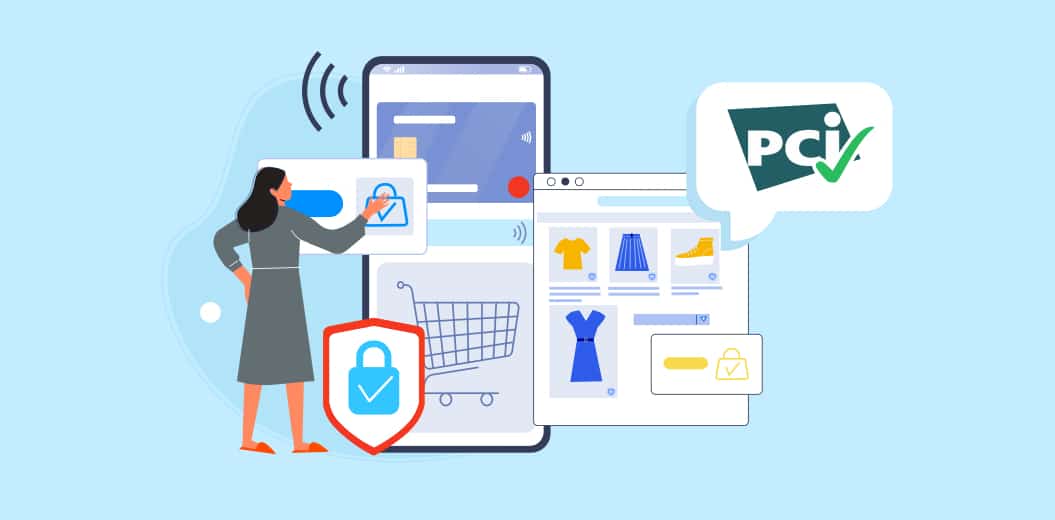
The eCommerce platform you choose will decide whether it is your responsibility or of the third-party team to develop and maintain the website. Some cloud-based platforms provide this security for their clients because the data is on their servers. They are responsible for managing it.
For other hosted solutions, the client is in charge of ensuring that all PCI compliance requirements are satisfying. You’ll have to make sure at your end that payment gateways meet industry standards.
Cost Acquired
A hosted solution will cost you more with the software’s license fee, maintenance costs of server hosting, development costs, and the in-house IT team costs.
A fully-hosted, cloud-based SaaS or PaaS platform typically requires a monthly fee for hosting, security, maintenance, and support. It will lessen your overall operating costs to some extent.
Purchase Related Requirements
As a B2B eCommerce website, you need to have your purchase-related requirements clearly defined. A B2B buyer usually places a bulk order, and it requires specific features to make it a secure and frictionless experience.

B2B purchases are different from B2C purchases, and therefore, B2B eCommerce websites require more features to make it easy for sellers and buyers to communicate through the B2B website. These features can be divided into three categories of the eCommerce customer journey: pre-purchase, purchase, and post-purchase.
Pre-Purchase
Analyze if your B2B eCommerce Solution provider will offer an option for:
- Creating a parent account – Creating a primary account with multiple child accounts. The child accounts should further enable permissions, credit limits, workflow, etc.
- Creating customer groups – You should be able to set attributes such as pricing, minimum order quantity, etc. specific to a group.
- Creating Advanced Search Functionality – Your customers should find the exact product and should not face difficulty because of the sophisticated product attributes.
- Sales Literature – Customers should be able to get information such as product features, technical specifications, product images, etc. The platform should also support various media types such as PDF, videos, images, etc.
- Different Price Levels – The platform should make it convenient for you to define different price levels depending on customer groups, order quantity, order history, payment terms, etc.
Purchase
- Minimum Order Size – There should be an option to install (at customer group or product level) and order (during order placement) the minimum order quantity.
- Configure Products – Customers should provide a tool to configure products and even update the price based on configurations selected.
- Quotation Process – There should be an option for creating, modifying and approving the quotes online.
- Order Approval Process – The approval of orders should come from parent accounts, whereas child accounts can only initiate the orders.
- Credit Limits, Payment Terms, Bill Pay – There should be an option to settle pending invoices (across accounts) through a single payment or multiple payments.
Post-Purchase
- ERP Integration – A seamless eCommerce and ERP integration, although not mandatory, can still be asked. Both automates and streamlines order fulfillment, and also improves customer experience by making the right information available across systems.
- Salesperson – Your salesperson can access information to address customer queries, adding customers, creating or updating orders, checking order status, etc., through a sales portal like functionality.
- Simplify Order Placement – Customers should be allowed to save shopping carts or lists for future use, easy for customers to repeat one of their previous orders.
Support Multiple Warehouses – The platform should be extensible to support fulfillment from multiple warehouses.
B2B eCommerce Features: What to Look for in a B2B Platform?
B2B eCommerce trends, requirements and challenges differ significantly from B2C in the purchase patterns, order values, volumes, and processes.
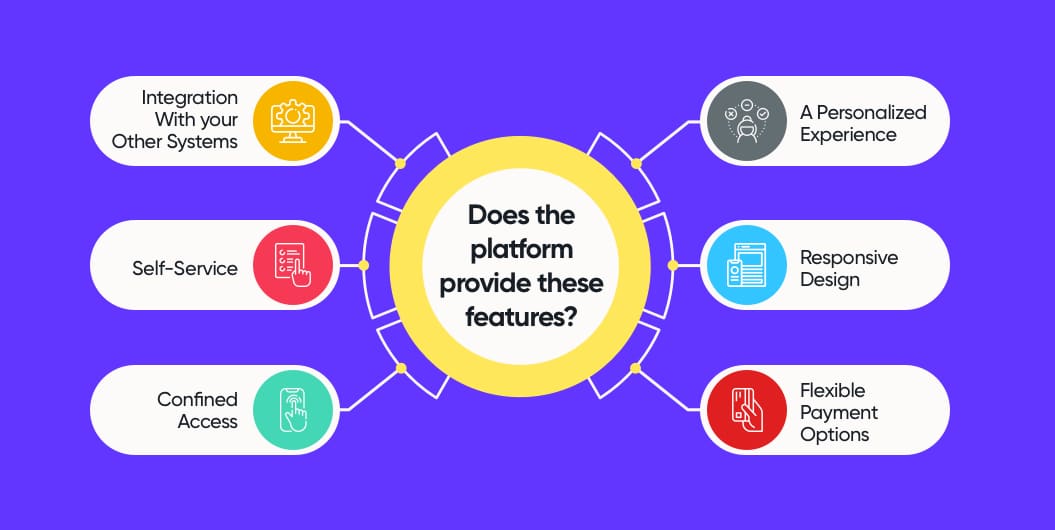
For seamless customer experience, an ideal B2B eCommerce platform should provide the following features:
A Personalized Experience
Customized B2B catalog management is presumably the most distinct and notable among B2B eCommerce features. It empowers sellers to customize product lists for companies, business units, divisions, and even individual buyers or customers.
B2B eCommerce stores often fail due to their rigidity and are designed based on a standard template. When it comes to the requirements of the business, no one-size-fits-all. The best B2B eCommerce platform for you is the one that fits your business requirements and allows you to provide a customized experience instead of just designing based on templates.
Responsive Design
This functionality is not specific to just B2B platforms. Every kind of eCommerce platform should support responsive design for rendering your web content correctly across multiple devices. New-age buyers like to hop across different methods during the purchase process, and this functionality allows for such buying behavior.
Flexible Payment Options
B2B transactions are complex, and making them easy requires a lot of advanced functionality, which is not a part of the typical B2C eCommerce experience. The challenge and urgency lie in delivering a B2C-like shopping experience, with sleek site design and functionality for large catalogs and segmented pricing.
Flexible payments, one of the essential features of B2B Digital Commerce Platforms, results in a better user experience. While offering different payment methods and installment strategies, ensure that offline payment options are also available with online options such as Credit cards, NEFT, IMPS, RTGS, and so forth.
Confined Access
Some B2B businesses enable pre-registered customers or sellers to order products from their online shops or store. For example, if your company sells through a network of vendors, your site should be designed so that approved sellers can access it.
Ensure that your eCommerce platform is secured with a password and offers restricted access to customers only. You can even limit access to specific parts of the site to unregistered customers, meaning the landing page and product list are accessible to everybody.
Self-Service
The self-service purchasing functionality is a massive advantage in B2B eCommerce. B2B buyers require the necessary information for deciding on their preferred product/solution before making a purchase like shipping information, quote approvals, etc. Ensure that the platform enables your eCommerce website to deliver the above features.
Integration With your Other Systems
In addition to platform types or features, integration is also an essential factor to be considered before choosing a B2B eCommerce platform. It should integrate effectively with your other systems because this will ensure harmonious working between your online and offline channels.
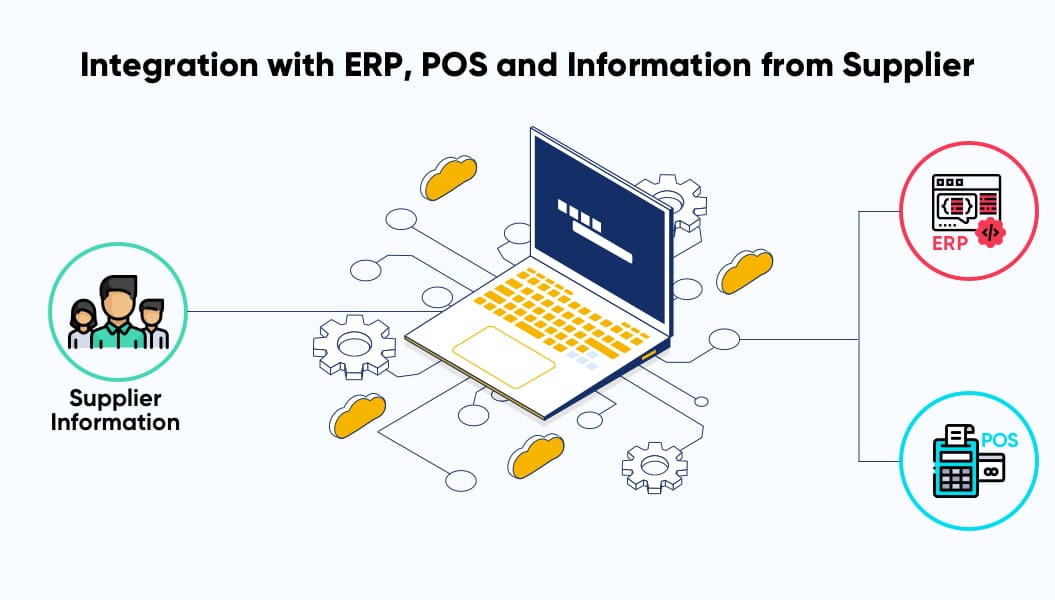
A well-integrated website will make you a more efficient multi-channel seller and result in a better customer experience.
While evaluating different platforms, analyze how it will work with your ERP or POS system. Ask yourself a question, “Will your platform be able to handle information that comes through your suppliers?
Not all eCommerce platforms are easy to integrate; some are easier to incorporate than others. Choosing a cloud-based platform with a robust API will be easier to organize than a self-hosted solution.
Some providers will integrate all your systems for centralized order and inventory management.
To save time and money, make sure to ask your B2B eCommerce platform provider about integration beforehand. Don’t make the mistake of investing in an entirely new eCommerce platform only to find out later that it can’t integrate with your ERP.
While mentioned-above were essential B2B eCommerce features that you look for before choosing a platform, let’s now see some of the crucial questions that will help you make an informed decision.
Some important questions of B2B that you should ask about social media

- Is there an option for publishing our product catalog on Facebook Shop? If yes, then will it be charged additionally?
- Will the users check out from within Facebook, or will they be redirected to our B2B store?
- Is there any support for Pinterest buy buttons?
- Is there any support for shopping on Instagram?
- Are Open Graph Tags included in the product metadata?
- Are social media sharing links supported on PDP?
- Will social media sharing links be displayed post-purchase?
- Will customers be able to login to our storefront via social logins such as Facebook, Amazon, Google, etc.?
- We want to display user-generated content such as Pinterest or reviews. How will that be done?
Some important questions that you should ask about catalog management of b2b platform.
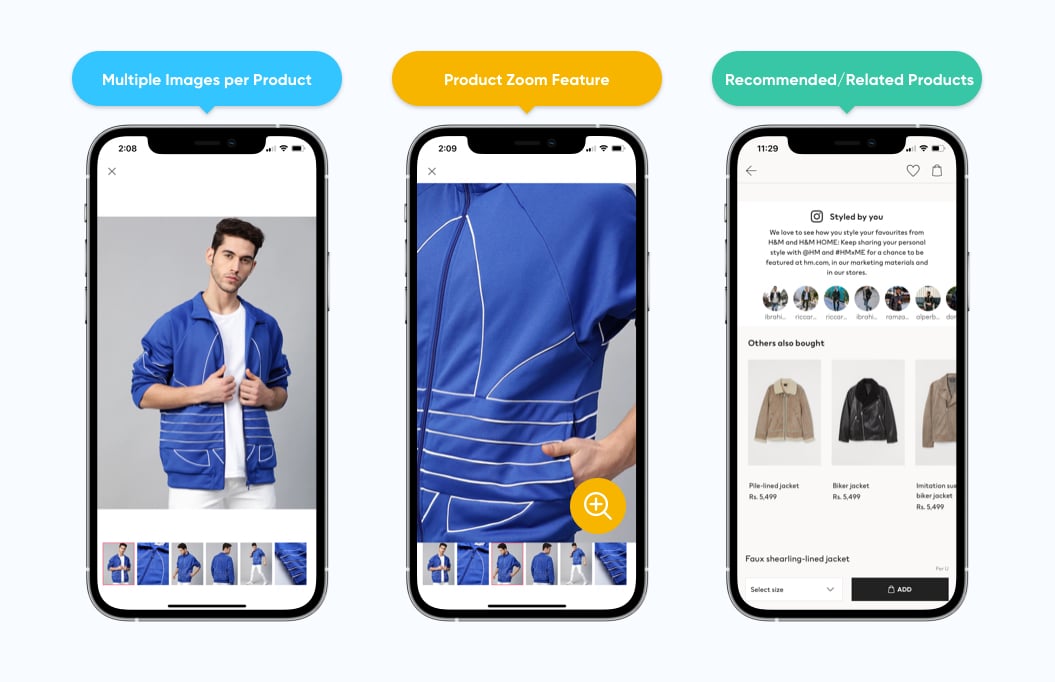
- How will we manage our product catalog within your system?
- How is the catalog and customer data imported/exported?
- What are the product catalog preview options? Can it be previewed in any theme for free, or will we have to purchase the theme?
- Can multiple images be added per product? Is there any specific limit to the number or size of images
- Can videos be added to PDP? If yes, then how easy/difficult is it?
- Is there a specific limit on the size and length of videos that can be uploaded?
- How are product options and option sets managed in your platform?
- How are variations or options configured?
- Do you provide a quick edit option for modifying stock levels or pricing change?
- Does your platform support both digital and physical products?
- Is there a built-in inventory management system?
- How is real-time inventory sync supported within multiple channels?
- Can we track inventory at the variation level?
- Is dimensional weight understood and supported by the shipping system?
- Can related items be configured?
- Can related items be automatically generated?
- Are pre-orders allowed?
- How are custom product pages supported? Is there an option to configure them per category?
- Will the product reviews be built-in?
- Can customers easily share products with their friends from the PDP?
- Is the site search predictive?
- Do you allow categories to be sorted manually in the control panel?
- Do you allow categories to be used for private sales?
- Are category filters supported?
- Will the categories and products have breadcrumbs?
- Will the Page/Product/Category URLs auto-generated?
- How can the product and category level URLs be customized?
- Is there any support provided for multi-level category navigation?
Some important questions that you should ask about b2b customer service:
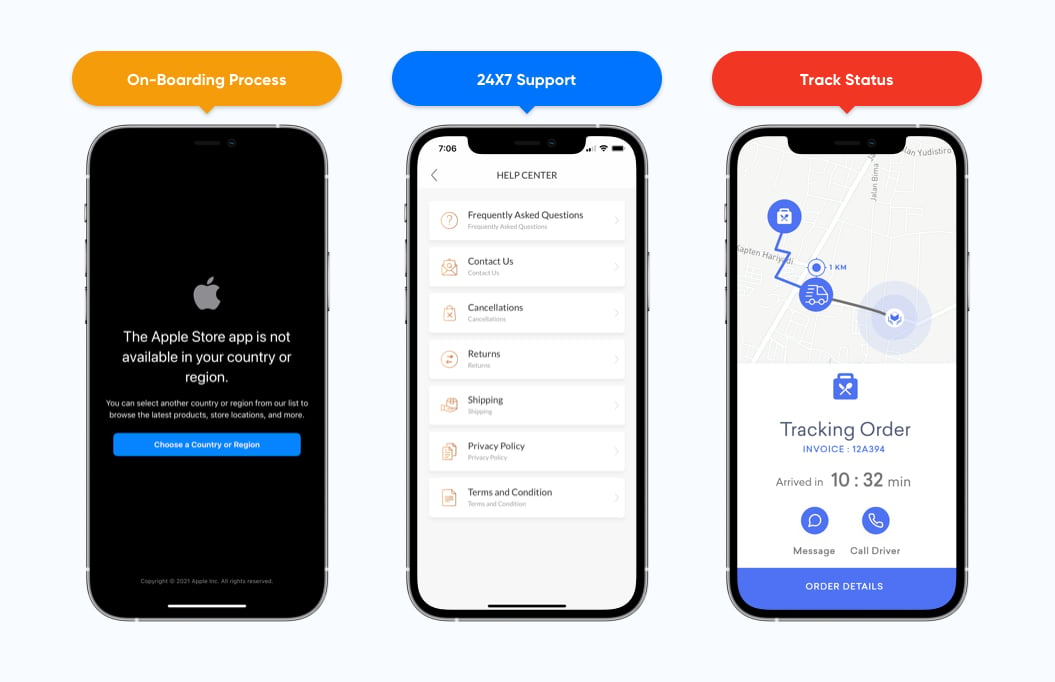
- What is your onboarding process for new clients?
- Can you share an example of an implementation timeline?
- Will training and user documentation be provided for the entire platform?
- What is your support process along with standard SLAs?
- What are your change management processes, such as system audit logging capabilities?
- How will our historical data (orders, customers, products) migrate to your solution?
- Can you share an example of a customer success plan offered by you to your customers?
- Can you extend support hours for an event’s onsite operation?
- How many customer support executives do you have, and where are they located?
- What is your phone support offering? Is it available 24/7? Is it charged additionally?
- What is the average wait/response time for phone support?
- How are urgent and time-sensitive requests handled? Are they prioritized?
- If needed, will we be provided with a dedicated support representative?
- Do you use a ticketing system? If yes, then which one? How can we follow the status of our tickets?
- What are your Support SLAs?





